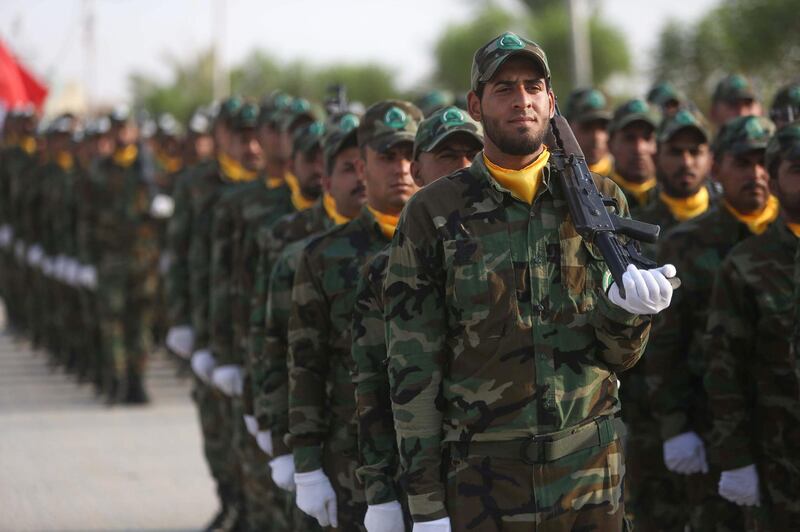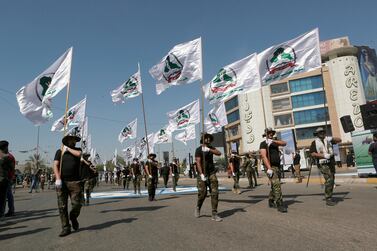Iran-backed militias in Iraq on Thursday announced plans to form their own air force after strikes on their weapons depots and bases that they blamed on Israel.
The Popular Mobilisation Forces, also known as Hashed Al Shaabi, received Iranian training and advice while fighting against ISIS independently of the US-led coalition.
It is made up of disparate groups including some Sunni and Christian tribal units.
“We announce the formation of an air force directorate with the appointment of Salah Mahdi Hantous as its chief,” the Hashed said, suggesting this would be done outside Iraq's armed forces.
The Israeli strikes hit Hashed targets in western and central Iraq last month. The militias accused Washington of assisting Tel Aviv and threatened to attack US military bases in retaliation.
Although Israel did not claim responsibility for the strikes, Prime Minister Benjamin Netanyahu said Iran was threatening its security by setting up military bases in Iraq, Syria and Lebanon.
Mr Netanyahu said last month that Israel had carried out hundreds of strikes in Syria, some of them on Iranian targets, to prevent Tehran from establishing a permanent presence there and to stop advanced weapons reaching Iran's proxies in the area.
“We are operating in many areas against a state that wants to annihilate us," he said. "Of course I gave the security forces a free hand and instructed them to do anything necessary to thwart Iran’s plans."
The Iranian-backed militias became a formal part of the Iraqi armed forces in 2016, supposedly reporting to the head of government.
But they have so far failed to obey Prime Minister Adel Abdul Mahdi’s orders to integrate into the army and cut ties with political groups.
“This kind of agency now has a life force of its own and will not be demobilised in the near term,” said Michael Knights, a senior fellow at the Washington Institute for Near East Policy.
Mr Knights told The National that Iraq would probably have a parallel military similar to the Islamic Revolutionary Guard Corps in Iran.
The attacks on Hashed targets have set back security and stability in Iraq, just as it appeared to be on the path to recovery after the devastating war against ISIS and decades of conflict before.







